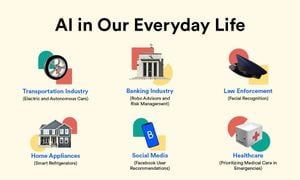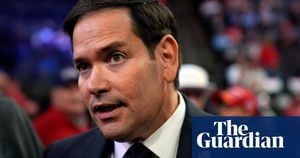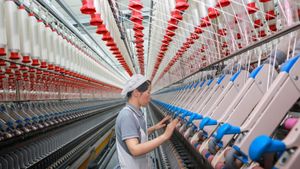California is once again at the center of the electric vehicle (EV) conversation, but this time it’s stirring up tensions not just within the state, but across the entire automotive industry. Recently, Toyota Motor North America raised significant concerns about California's ambitious plans to ramp up the adoption of electric vehicles through its Advanced Clean Cars II regulations.
According to these regulations, California aims for 35% of vehicle sales to be zero-emission vehicles (ZEVs) by 2026, scaling up to 100% by 2035. Jack Hollis, the Chief Operating Officer of Toyota Motor North America, has publicly expressed skepticism about these targets, labeling them as "impossible" and warning they might limit consumer choices across the state and beyond.
While California leads the nation with 27% of its vehicle sales being either EVs or plug-in hybrid electric vehicles (PHEVs), other states are lagging significantly. For example, New York stands at just 12%, New Mexico at 5%, and Rhode Island at 9%. Nationally, EVs and PHEVs account for only 9% of retail vehicle sales through October this year. This stark disparity raises serious questions about whether demand can keep pace with governmental mandates.
Hollis articulated the problem during a virtual briefing, pushing back against the regulatory ambitions. He pointed out the lack of market readiness and infrastructure to support such sweeping changes, stressing, "Demand isn't there... it’s unnatural to what the current demand is." This scenario leads to potential "unnatural acts" among automakers trying to meet the strict quotas imposed by the state.
This critique reflects broader industry concerns as automakers reassess how to respond to California's mandates, especially with the 2024 presidential elections around the corner. Under the previous Trump administration, state flexibility on emissions regulations was curtailed, leading to fears of similar future policies. Should Trump win again, he’s likely to attempt restricting states' rights to set their own emission standards, similar to what occurred during his first term, which could complicate efforts to meet California’s aggressive targets.
California's aggressive EV mandates do not exist in isolation; they create ripples throughout the U.S. automotive sector. With 12 other states adopting similar stances, there’s pressure mounting on all automakers to not only comply with California's rules but to do so within rapidly approaching deadlines. If these targets remain rigid, experts suggest it could provoke uneven market dynamics where compliant automakers divert more EVs to states with stringent regulations, distorting consumer options and limiting accessibility.
The backdrop of this debate also finds itself intertwined with the automotive industry’s push for substantial EV investments. South Korean automakers such as Hyundai, LG, and Samsung are heavily investing in EV production capabilities across the United States, pursuing large-scale projects to establish themselves as leaders in the burgeoning EV market.
Despite the anticipated policy changes with Trump potentially at the helm, these Korean firms are not backing down. They are firmly committed to their U.S. operations, emphasizing their intent to expand battery production and other EV-related investments. An SK On vice president stated, "We’re bent on continuing our investment regardless of elections, with a focus on mitigating China’s advances globally."
This considerable commitment seen from Korean firms also counters the skepticism expressed by companies such as Toyota. Their willingness to continue operations amid changing regulatory environments may give them strategic advantages as the industry evolves. The investments by companies like LG Energy and SK On, totaling $21.5 billion last year alone, underline their determination to deepen ties with the U.S. automotive ecosystem.
These investments could potentially yield significant returns, especially if they result in the production of cheaper EVs and batteries, helping to counterbalance the expected downturn from federal policies, should they turn unfavorable. Meanwhile, all eyes are on California's Air Resources Board (CARB), as they deliberate on potential adjustments to the ambitious regulations based on mounting industry feedback.
At the crossroad of policies and industry responses, the messages from automakers are becoming clearer: they prefer unified standards. Hollis mentioned Toyota's long-standing request for a national standard rather than state-specific rules, seeking consistency for consumers and manufacturers alike. Should California recalibrate its targets to reflect more realistic expectations, it might allow for constructive progress.
After all, significant investments already made across the country can't simply vanish overnight, and there's too much at stake economically and politically for major players — both on the corporate and governmental front. Whether or not California leads the charge for the future of electric vehicles or finds itself at odds with the shifting political dynamics will likely depend on how adaptable both the regulations and the automotive industry can be.
With the potential for substantial changes looming on the horizon, the automotive industry is preparing for another battleground where consumer preferences, regulatory ambitions, and corporate strategies will shape the narrative of electric vehicles for years to come. The question remains: will the industry's collective push for modernization win out against the surrounding challenges, setting the stage for the long-term success of EV initiatives, or will the tension between state ambitions and market realities force manufacturers to rethink their plans once again?



